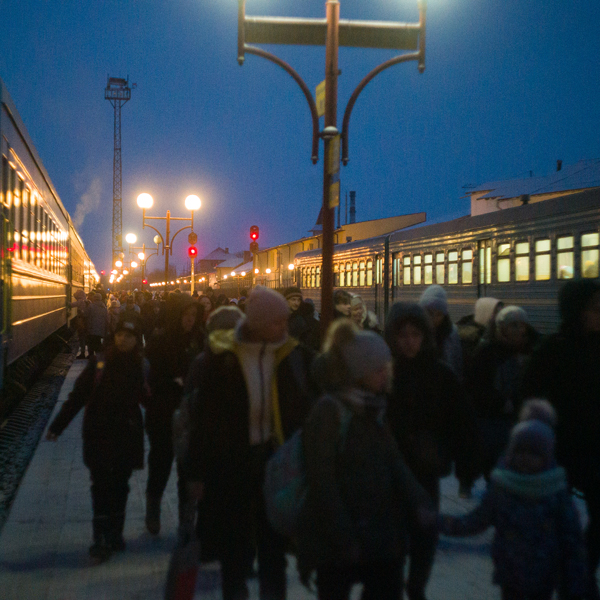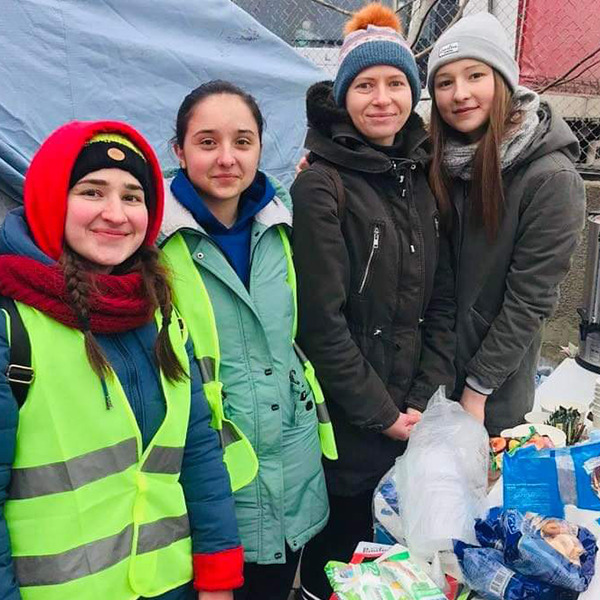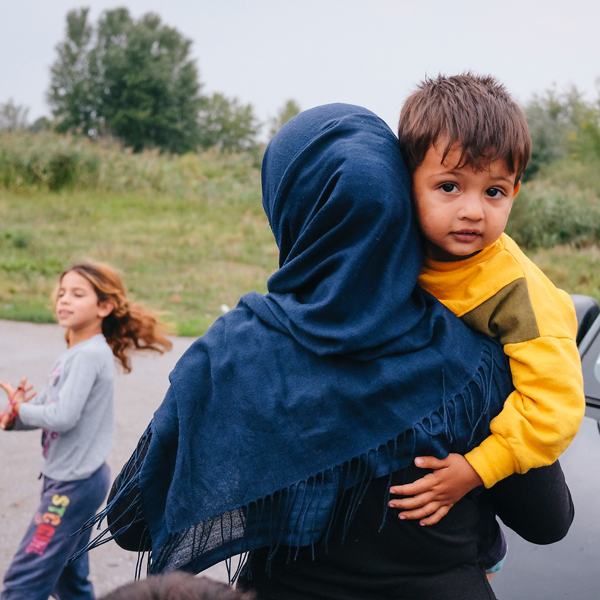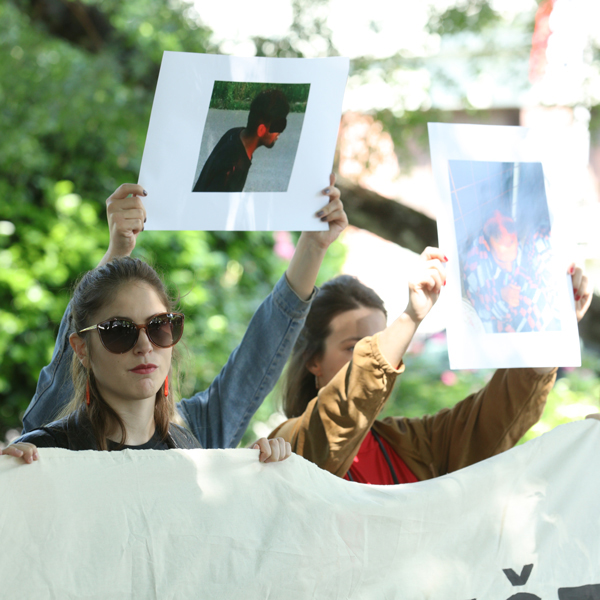Ukrainian refugees in Croatia, Italy, and Serbia face many challenges. GFC’s partners in the region are helping Ukrainian families find housing, enroll their children in school, and access health care and other services.
Shortly after Russia invaded Ukraine in February, Asylum Protection Center (APC) in Serbia started pressuring its government to grant temporary protection to Ukrainian refugees.
APC’s advocacy campaign – which included media appearances and meetings with national and international stakeholders – paid off. In mid-March, the Serbian government granted Ukrainians temporary protection, a legal status that allows them to remain in the country and access free education and other services until it is safe for them to return home.
APC had previously advocated for the same legal status for refugees fleeing Syria, but the Serbian government had refused to grant it. Despite receiving better treatment than migrants from other regions, however, Ukrainian children and families in Serbia still encounter many obstacles.
One of the main challenges is access to information, especially for Ukrainian families staying in private accommodations. APC is disseminating information through its website, mobile field teams, phones, social networks, and other channels so Ukrainians know how to register for temporary protection and how they can access local services.
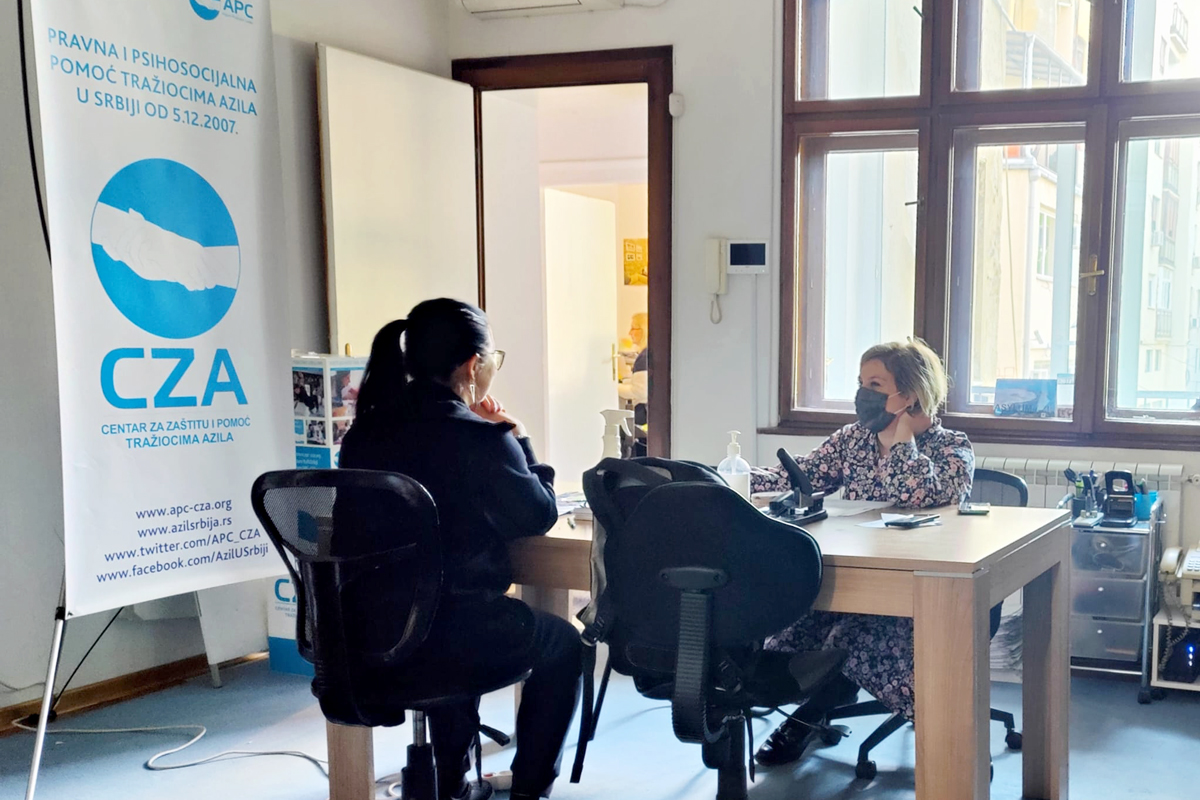
Most Ukrainian children are not yet enrolled in local schools, APC said, because the schools haven’t received clear instructions from the Serbian government. APC plans to engage with schools to support their efforts to enroll Ukrainian refugees and hopes to share best practices for assisting children who have experienced trauma.
Since the war started, more than 7,500 Ukrainians have arrived or stayed in Serbia with the intention of applying for temporary protection, according to APC, but the Serbian government has been slow to approve their requests. Without proof that they have legal status in Serbia, some Ukrainian families have been turned away from health centers and jobs. APC staff are accompanying refugees to medical appointments to ensure they receive care while also pushing the government to develop a more efficient temporary protection process.
Most of the Ukrainian refugees in Serbia are women and children because men of military age – between the ages of 18 and 60 – have been banned from leaving Ukraine. This family separation takes a toll on the mental health of children and their parents, and APC anticipates a growing need for psychosocial support.
“They’re separated, the family is broken, and they’re afraid of what’s happening with their boys or fathers,” explained Rados Djurovic, APC’s Executive Director.
Neighboring Croatia, where more than 18,000 Ukrainians have fled since the war started, has also granted temporary protection to Ukrainian refugees. As in Serbia, however, access to information remains a challenge.
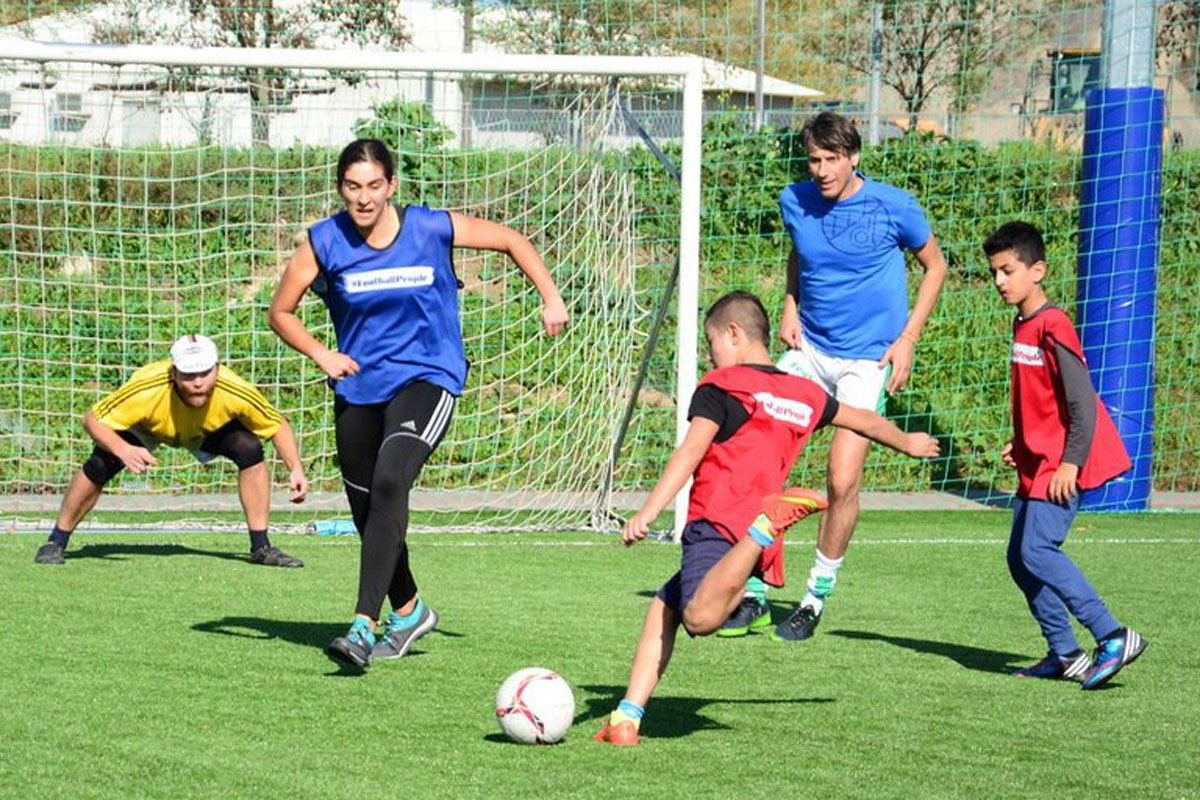
Centre for Peace Studies (CPS) has been offering support by providing legal aid and information to individuals and families and visiting refugee reception centers.
Although many Ukrainian children have been able to enroll in Croatian primary and high schools, families with young children are struggling to find spots in kindergartens, which were already over capacity before the refugees arrived. Some children have also struggled with Croatian language lessons, which are mainly offered online, said Sara Kekuš, a CPS Project Manager. “For kids who need to be with their peers and socialize, it would be great to have live lessons,” she said.
Many of the Ukrainians who have fled to the Balkans so far have resources and local contacts, such as friends or family with whom they can stay. But APC and CPS anticipate that, as the war drags on, Ukrainians with fewer resources will also flee to their countries.
“With time, I think people who don’t have anyone here will start arriving, and they will need our support,” Sara said.
Not far from Croatia, in the northeastern corner of Italy, Italian Consortium of Solidarity (ICS) said that at least 48,000 Ukrainians have passed through this area of the country, with roughly 800 remaining in the city of Trieste.
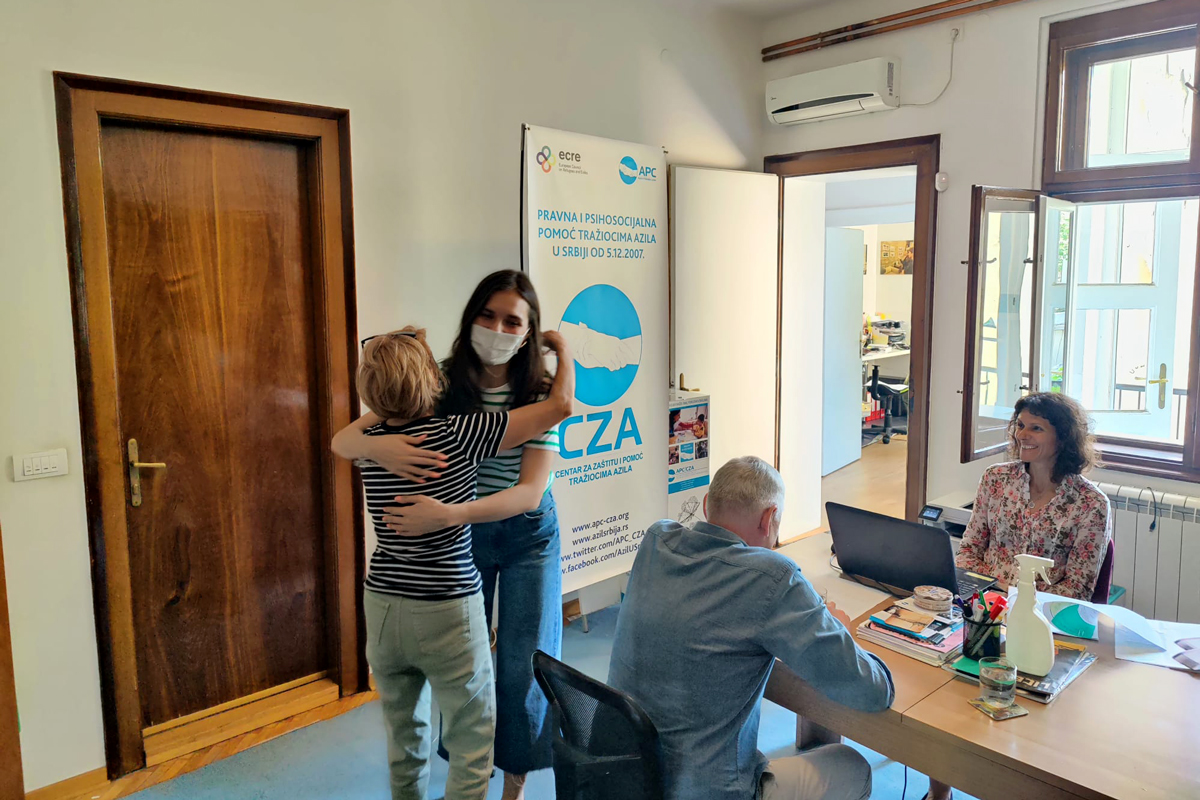
Historically, Trieste has been the point of arrival in Italy for migrants coming from the Balkan migration route. As ICS has done for the last 24 years for migrants from around the world, it has offered the Ukrainian refugees accommodations; legal, health, and psychological support; and a path to integration in the local context through school enrollment for kids and vocational training for adults.
“Our role is to pay attention to people’s needs and help them navigate local services to resolve problems and achieve wellness, no matter where they come from,” said Arianna Ferracin, a Case Worker at ICS.
While the arrival of the Ukrainian refugees has been, in certain respects, a new situation for ICS, given the unusual wave of support and humanitarian aid from the local population and administration, ICS said that challenges remain as newcomers still need guidance and support, including for school enrollment.
“We help in the school, we go with families to the school, we help with enrollment, buy the books, everything,” explained Anna Bernardini, an ICS Coordinator.
APC, CPS, and ICS are part of the Balkan Refugee Network, a coalition of organizations fighting for the rights and wellbeing of refugees in the region. APC and CPS are also part of GFC’s Reducing Violence Against Migrant Children in Southeast Europe initiative, which is a partnership with the Swedish Postcode Foundation, and ICS has received a grant through GFC’s Ukraine Emergency Response Fund.
All three organizations hope to build on the legal protections and services offered to Ukrainian refugees to improve the treatment of migrants from Asia and Africa, who often experience discrimination because of their race and religion.
Rados said he hopes APC’s recent success securing temporary protection for Ukrainians has laid the groundwork for similar protections for refugees from other countries. “Once you open the door of temporary protection, it means that you can advocate more, you’re stronger in every step,” he said.
To learn more about how APC, CPS, and other partners in GFC’s Reducing Violence Against Migrant Children in Southeast Europe initiative are assisting migrants and refugees from other countries, check out the blogs posts on the initiative webpage.
Header photo: A woman holds a flyer and phone with information from APC about applying for asylum in Serbia. APC also distributes information about applying for temporary protection for Ukrainian refugees. © GFC / Petar Markovic
